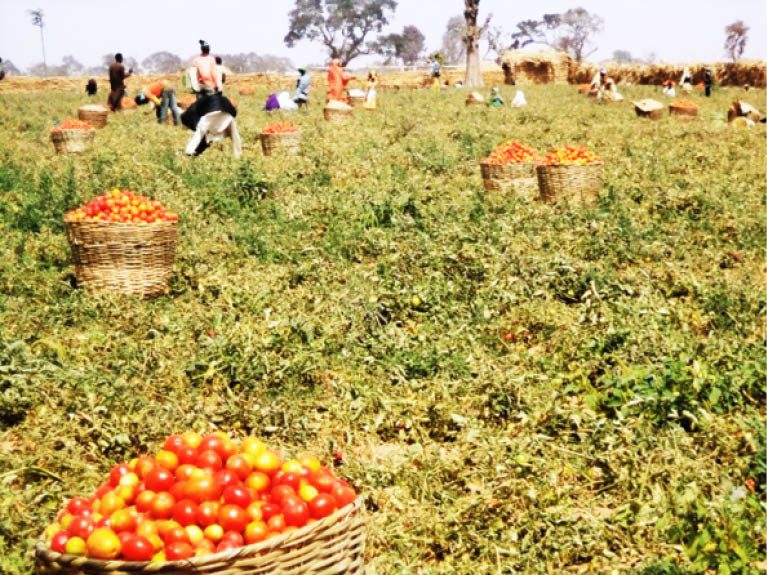Nigeria loses about $12 billion (about N4.566 trillion) annually after harvest, records have shown.
However, these losses may soon be reversed by 50 per cent through modalities and the development of a Secured Agricultural Transport and Storage Corridor (SATS-C) policy.
- I started my business with N2000, CEO HannisHive
- State election commissions want Igini sanctioned over ‘organised crime’ comment
At the policy meeting held on Thursday in Abuja, NIRSAL’s Managing Director/CEO, Mr. Aliyu Abdulhameed, said he “believes that a fully operational SATS-C policy could directly lead to a 5 per cent increase in the agriculture sector’s contribution to national GDP by halving annual post-harvest losses of $12 billion.”
The policy will facilitate a holistic structuring of nodal service platforms to support seamless Route-to-Market operation for agricultural commodities.
“Benefits lie in the lowering of food prices, creation of 125,600 direct and indirect jobs, and the heightened possibility of adhering to standards for improved access to export, industrial and consumer markets,” he added.
NIRSAL said it is reaching out to enabler institutions, driving necessary dialogues and championing advocacy to support the Federal Ministry of Trade and investment in the development and implementation of the SATS-C policy.
The Minister of Trade and Investment, Adeniyi Adebayo said SATS-C policy will provide a lot of benefits.
He said it will ensure that a single Secured Commodity Aggregation Zones (SCAZ) of a 100,000 metric tonnes annual capacity will create 25,600 direct jobs, 100,000 indirect jobs and save about $37 million in foreign exchange due to an improved supply chain system.

 Join Daily Trust WhatsApp Community For Quick Access To News and Happenings Around You.
Join Daily Trust WhatsApp Community For Quick Access To News and Happenings Around You.


